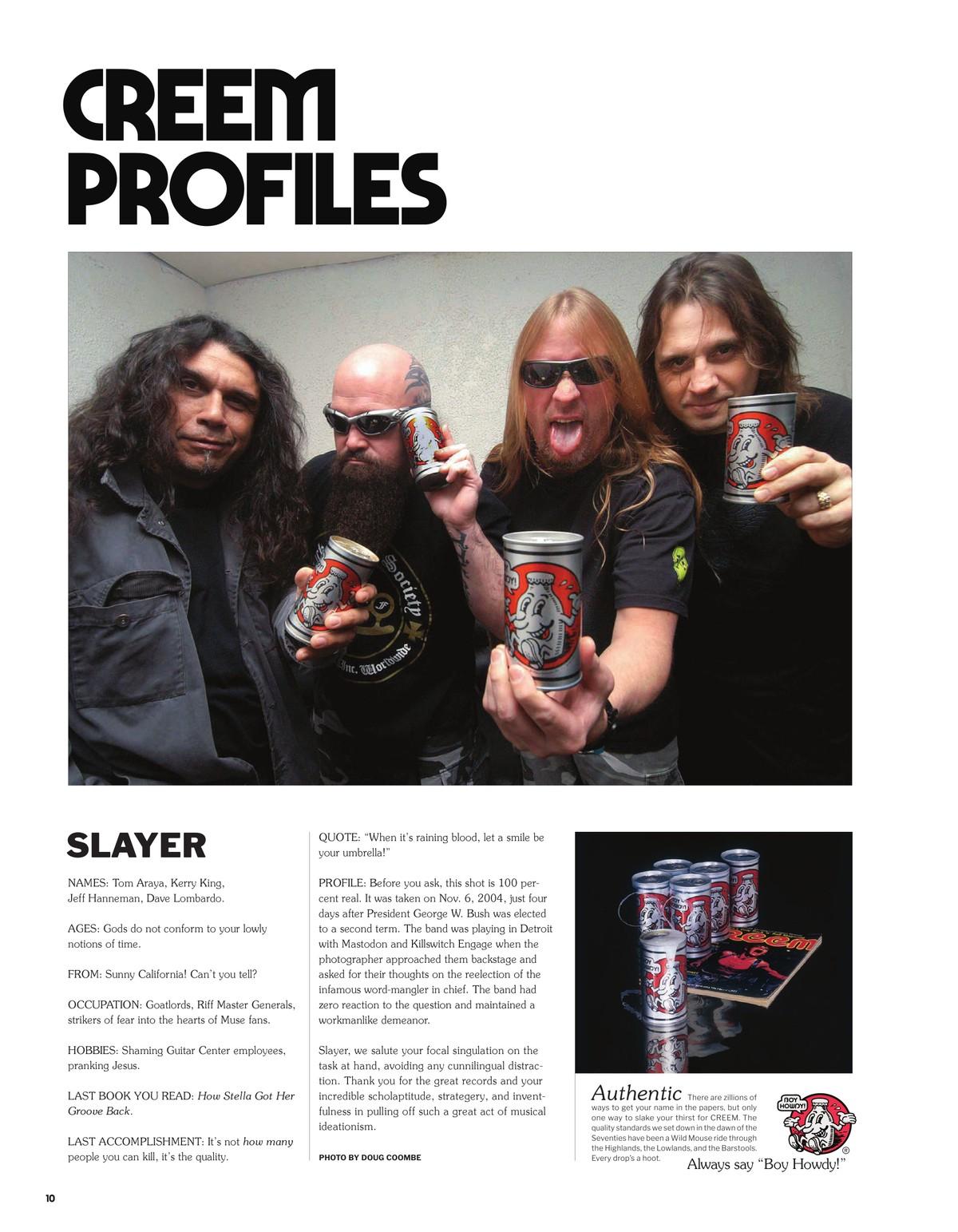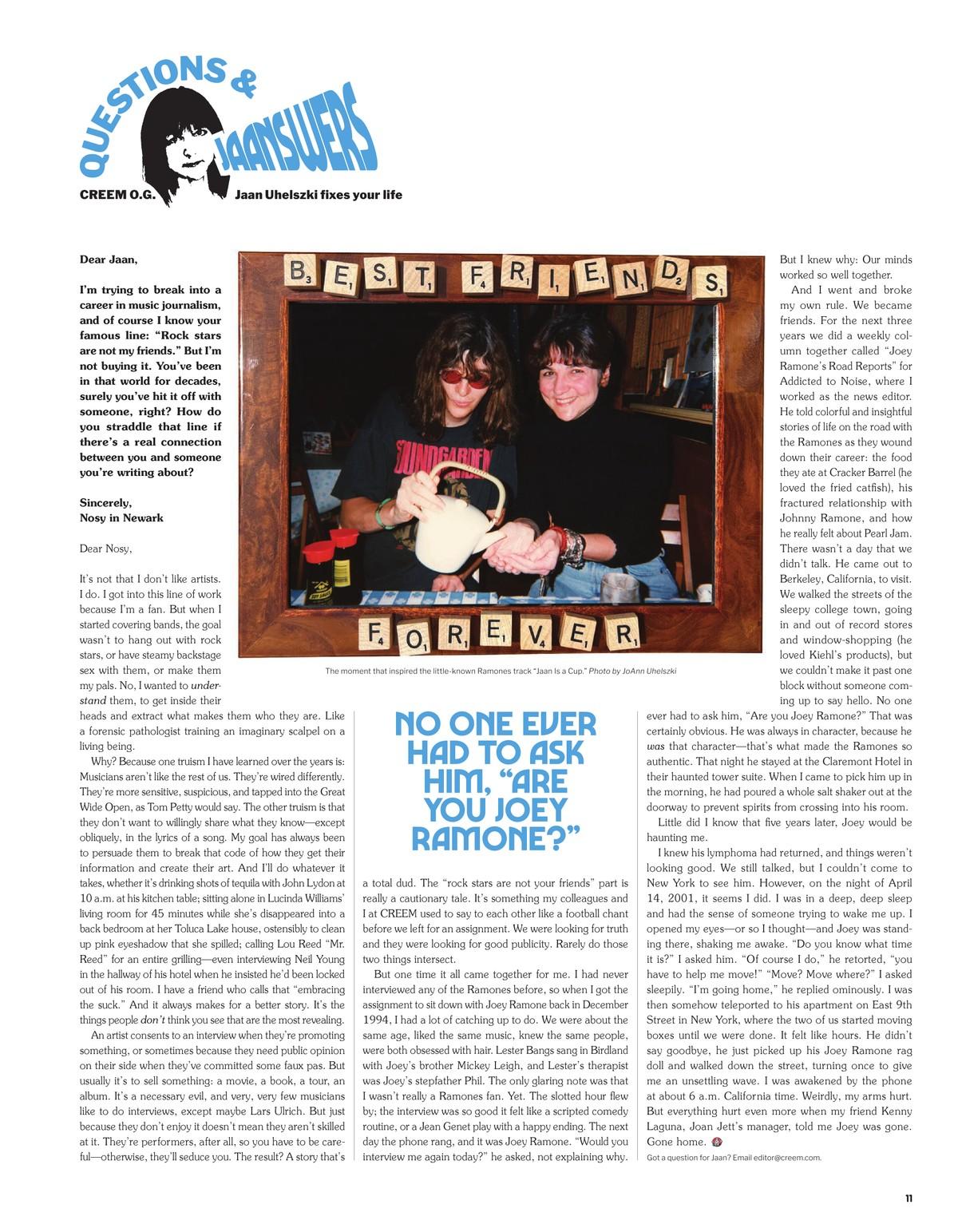QUESTIONS & JAANSWERS
Dear Jaan, I’m trying to break into a career in music journalism, and of course I know your famous line: “Rock stars are not my friends.” But I’m not buying it. You’ve been in that world for decades, surely you’ve hit it off with someone, right?
June 1, 2023


Loading...

